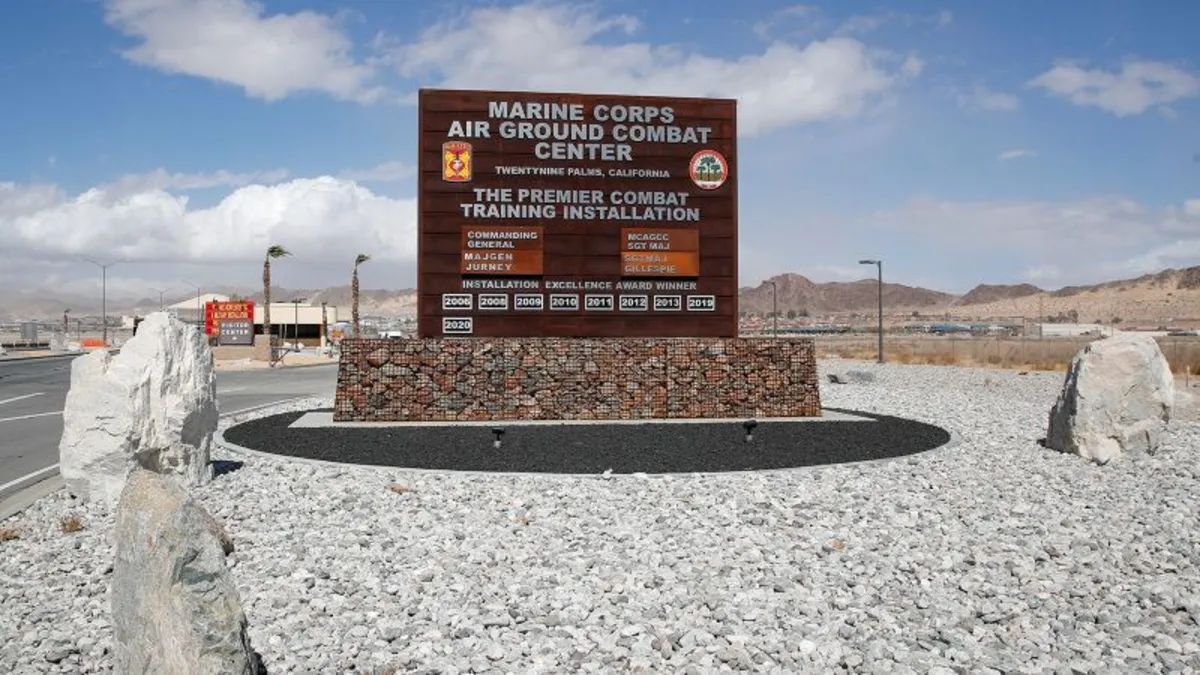
In a significant escalation of military involvement in domestic affairs, over 700 Marines from the Marine Corps Air Ground Combat Center in California have been mobilized to assist in response to ongoing protests in Los Angeles. These troops will join the ranks of thousands of National Guard members who were activated by President Donald Trump over the weekend, a decision made without the consent of California’s governor, Gavin Newsom, or LA’s mayor.
The deployment of the full Marine battalion represents a marked escalation in Trump's utilization of military forces as a show of strength against protesters. While the exact roles of the Marines once they arrive in LA remain unclear, sources indicate that their presence is intended to augment existing National Guard operations. Like their National Guard counterparts, the Marines are currently prohibited from engaging in law enforcement activities, such as making arrests, unless the Insurrection Act is invoked. This act allows the President to deploy military forces to suppress insurrections against federal authority.
The Marines being activated are part of the 2nd Battalion, 7th Marines, 1st Marine Division, as confirmed by US Northern Command (NORTHCOM). The intent behind this mobilization is to provide Task Force 51 with sufficient manpower to ensure continuous coverage in the area, supporting the lead federal agency during this critical time. A source familiar with the situation noted that the Marines will serve to boost the presence of National Guard troops already deployed in Los Angeles, which currently includes around 300 activated members of the California National Guard.
The initial 300 National Guard troops were mobilized quickly during a routine drill weekend, which allowed for a rapid response. In contrast, it typically takes up to 72 hours to mobilize other Guard members. The Marines’ deployment is expected to enhance efforts to manage the protests and maintain order in the region, although their specific roles have not yet been publicly defined. Potential tasks could involve crowd control and perimeter security as they support ongoing operations.
Governor Newsom has voiced strong opposition to the mobilization of Marines, labeling it as “unwarranted” and “unprecedented.” He emphasized that employing military forces against American citizens is an extreme measure, and disputed the terminology used by officials, arguing that mobilization differs from deployment. Nonetheless, US Northern Command has asserted that the Marines will work in tandem with National Guard forces to safeguard federal personnel and property in the greater Los Angeles area.
In light of the upcoming military presence, Los Angeles Police Chief Jim McDonnell has called for “open and continuous lines of communication” among all agencies involved in managing the protests. He underscored the importance of coordination to prevent confusion and escalation, ensuring a lawful and orderly response during this crucial time. McDonnell's remarks highlight the experience of local agencies in dealing with large-scale demonstrations, with public safety remaining their utmost priority.
This developing story reflects the complexities of deploying military forces within U.S. borders, particularly in response to civil unrest. Further updates are anticipated as the situation evolves.